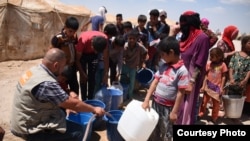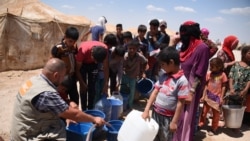In May, backed by U.S-led coalition air strikes, Iraqi security forces, including the largely Shiite, Iranian–supported Popular Mobilization Forces, started to advance on Fallujah to free the city from ISIL occupation. Recently, the Iraqi government announced it detained a number of fighters during an investigation into possible human rights abuses against civilians fleeing the city.
Rights monitors, including the UN’s High Commissioner for Human Rights Zeid Ra’ad al Hussein, said there have been credible reports of abuse of Iraqi Sunni men and boys, including torture and execution, as they escaped from Fallujah.
Mr. Zeid called on the Iraqi government to “show its commitment to protecting civilians by fully investigating reports that people who have suffered two and a half years of living hell under ISIL, and have faced enormous difficulties and dangers getting out of Fallujah alive, are now facing double jeopardy in the form of serious human rights violations after they have escaped. Those allegedly responsible for these violations must be brought to justice.”
State Department Deputy Spokesperson Mark Toner said the United States is “very concerned about reports that civilians in Fallujah and in the surrounding area have been subjected to torture, abuse and, in some cases, even murder:”
“Prime Minister Abadi, though, has clearly laid out instructions to Iraqi forces – and that includes the PMF, the Popular Mobilization Forces – to protect civilians and respect humanitarian rights. And we support that message, we support that approach.”
Mr. Toner noted that some PMF leaders have also now publicly committed themselves to protecting civilians and to holding abusers accountable. In addition, he pointed to the positive development of the Abadi government announcing the investigation into the abuses and arresting possible perpetrators.
As to the broader issue of a solution to sectarian tensions in Iraq, Deputy Spokesperson Toner said that “ultimately [it] is … for Iraq’s political leadership to make the kinds of decisions that bring the country together and don’t promote sectarianism… We continue to support the government and certainly Prime Minister Abadi’s efforts in that direction.”














